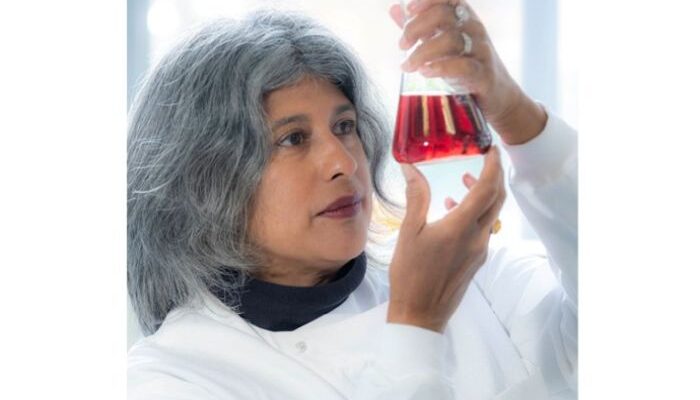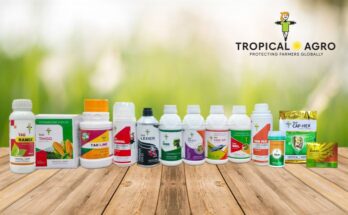Glasgow, UK: SOLASTA Bio, a UK-based biotechnology startup, has achieved a major milestone on the path to commercialisation with successful field trials of its groundbreaking green bioinsecticides, the biotech company informed.
SOLASTA Bio’s micro-peptide Insect Control Agents (ICAs), based on insect ‘neuropeptides’, demonstrated efficacy on par or better than commercial standards across 20 field trials on multiple crops in Europe, the UK and US during the 2023 trials season.
Field trials targeting aphids were conducted on sugar beet, vining peas, cotton, lettuce, cucumber and melon in sites across the UK and Europe, while peptides targeting Spotted Wing Drosophila and caterpillar pests were deployed on crops on sites in Europe and the US.
During trials in Greece, the company was also able to rapidly deploy new peptides against the emerging pest problem of leafhoppers on a cotton crop site, highlighting the versatility of its technology platform. The deployed peptides demonstrated leafhopper control at levels better than commercial standards.
You may also like to read: BioPrime AgriSolutions gears up for microbial revolution with breakthrough strains and advanced formulations
As well as demonstrating a high degree of efficacy, the trials also showed that beneficial insects continued to thrive in crops treated with SOLASTA Bio’s pollinator-safe products. No adverse effects on crop health were observed either.
Founded in 2020, SOLASTA Bio has developed the world’s first technology platform for creating neuropeptide-based ICAs that are nature-inspired rather than selected from a synthetic chemistry library. Its environmentally friendly ICAs meet a global need for new and effective crop protection while preserving the ecosystem by protecting beneficial pollinators such as bees.
With these latest results, SOLASTA Bio remains on course to bring its first ICAs to market in 2027/2028, in at least half the time traditionally taken by synthetic pest control products. SOLASTA Bio’s technology is patent protected with further patent protection currently under submission.
You may also like to read: Dhanuka Agritech collaborates with Spain-based Kimitec to produce biological agri inputs in India
Shireen Davies, Co-founder and CEO, SOLASTA Bio said, “We’re excited by these findings which bring us one step closer to delivering safe, effective micro-peptide ICAs to market. These outstanding trial results demonstrate our ICAs consistently perform on par or better than commercial standards across multiple pests, crops and territories. We are focusing now on expanding these as we ready these game-changing ICAs for growers worldwide.”
With the urgent need to protect pollinators and wildlife, while boosting agricultural productivity, SOLASTA Bio aims to play a leading role in the transition toward sustainable crop protection.
The global insecticides market is currently dominated by synthetic chemicals accounting for 94 per cent of insect control solutions, with a projected 2028 value of US$27 billion. While 75 per cent of food crops are dependent on pollinator insects, other insects cause enormous social, health and economic damage accounting for at least US$70 billion in US crop losses alone. However, the insecticide market is under increasing pressure from widespread insect resistance, lack of species specificity, increasing regulatory controls and consumer preferences for non-chemical residues.
(In Picture: Shireen Davies, Co-founder and CEO, SOLASTA Bio. The story is based on a press release by the biotechnology company)





